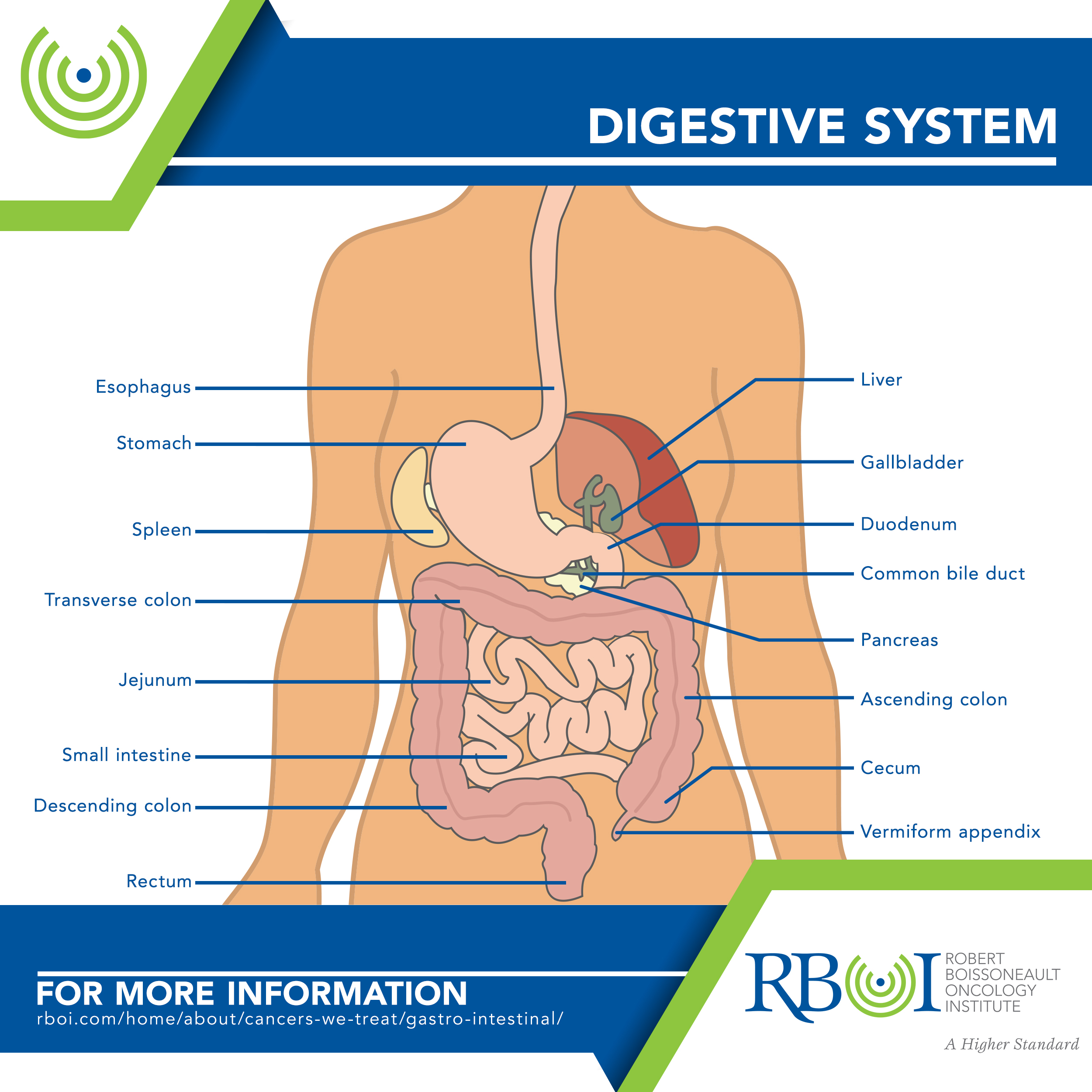Colorectal Cancer
Most colorectal cancers start as a growth (called a polyp) on the inner lining of the colon or rectum. Not all polyps are cancerous, but some can become cancerous over time and can grow into the wall of the colon or rectum. Finding and removing precancerous polyps can prevent colorectal cancer.
-
Forms of colorectal cancer
Forms of colorectal cancer:
Adenocarcinomas account for about 96 percent of colorectal cancers. These cancers start in cells that make mucus to lubricate the inside of the colon and rectum.
Other, much less common types of tumors can start in the colon and rectum, too. These include:
Carcinoid tumors, which form in hormone-making cells in the intestine.
Gastrointestinal stromal tumors (GISTs), which start from special cells in the wall of the colon called the interstitial cells of Cajal. These tumors can be found anywhere in the digestive tract, but are not common in the colon.
Lymphomas, which mainly start in lymph nodes, but can also start in the colon, rectum, or other organs.
Sarcomas, which can start in blood vessels, muscle layers, or other connective tissues in the wall of the colon and rectum. This type of colorectal cancer is rare.
-
Risk factors for colorectal cancers
Adenomatous polyps (adenomas), Age, Diabetes, Family history, Gender, Inflammatory bowel disease (IBD), Nutrition, Personal history of certain types of cancer, Physical inactivity and obesity, Race/ethnicity, Rare inherited condition, Smoking/alcohol
Adenomatous polyps (adenomas) — Polyps are not cancer, but some types of polyps called adenomas can develop into colorectal cancer over time. Polyp removal can prevent colorectal cancer.
Age — The risk of colorectal cancer increases with age. Although colorectal cancer can occur in young adults and teenagers, the majority occur in people older than 50. For colon cancer, the average age at diagnosis is 68 for men and 72 for women. For rectal cancer, it is 63 for both men and women.
Diabetes — People with type 2 (usually non-insulin dependent) diabetes have an increased risk of colorectal cancer. Even after accounting for shared risk factors, people with type 2 diabetes still have an increased risk.
Family history — If a person has a family history of colorectal cancer, the risk of developing the disease is nearly double. Colorectal cancer may run in the family if first-degree relatives (parents, siblings, children) or other family members (grandparents, aunts, uncles, nieces, nephews, grandchildren, cousins) have had the disease.
Gender — Men have a slightly higher risk of developing colorectal cancer than women.
Inflammatory bowel disease (IBD) — People with IBD, such as ulcerative colitis or Crohn’s disease, may develop chronic inflammation of the large intestine. This increases the risk of colorectal cancer. IBD is not the same as irritable bowel syndrome (IBS). IBS does not increase your risk of colorectal cancer.
Nutrition — Current research consistently links eating more red meat and processed meat to a higher risk of colorectal cancer.
Personal history of certain types of cancer — People with a personal history of colorectal cancer and women who have had ovarian or uterine cancer are more likely to develop colorectal cancer.
Physical inactivity and obesity — Colorectal cancer risk may increase in people who do not exercise regularly and who are overweight or obese. The link seems to be stronger in men.
Race/ethnicity — African Americans have the highest rates of sporadic, or non-hereditary, colorectal cancer in the US. Black women are more likely to die from colorectal cancer than women from any other racial group, and black men are even more likely to die from colorectal cancer than black women. Jews of Eastern European (Ashkenazi) descent have one of the highest colorectal cancer risks of any ethnic group in the world.
Rare inherited condition — Colorectal cancer risk increases significantly if family members have certain uncommon inherited conditions. These include familial adenomatous polyposis (FAP), attenuated familial adenomatous polyposis (AFAP), Gardner syndrome, Lynch syndrome (also called hereditary nonpolyposis colorectal cancer or HNPCC), juvenile polyposis syndrome (JPS), Muir-Torre syndrome, MYH-associated polyposis (MAP), Peutz-Jeghers syndrome (PJS), and Turcot syndrome.
Smoking/alcohol — Recent studies have shown that smokers are more likely to die from colorectal cancer than nonsmokers. Colorectal cancer has also been linked to moderate to heavy alcohol use.
-
Symptoms of colorectal cancer
A change in bowel habits, such as diarrhea, constipation, or narrowing of the stool, that lasts for more than a few days.
A feeling that you need to have a bowel movement that’s not relieved by having one.
Rectal bleeding, with bright red blood.
Blood in the stool, which may make the stool look dark.
Discomfort in the abdomen, including frequent gas pains, bloating, fullness, and cramps.
Weakness and fatigue
Unexplained weight loss
Unexplained iron-deficiency anemia
-
How is colorectal cancer treated with radiation?
Radiation therapy is not commonly used to treat colon cancer, but it is more commonly used to treat rectal cancer. External-beam radiation therapy (EBRT) is the type of radiation therapy most often used to treat colorectal cancer.
Radiation may be used before surgery (and with chemotherapy) to try to shrink the cancer and make it easier to remove.
Radiation may be used during surgery (intraoperative radiation therapy or IORT), right to the area where the tumor was, to kill any cancer cells that may be left behind.
Radiation may be used after surgery (and with chemotherapy) to try to kill any areas of cancer cells that may have been left behind but are too small to see.
Radiation therapy combined with chemotherapy may be used if a person is not healthy enough for surgery.
Radiation may be used as palliative therapy to help relieve symptoms in people with advanced cancer that is causing intestinal blockage, bleeding, or pain.
Internal radiation therapy (brachytherapy) may be used to treat some rectal cancers. A radioactive source is put inside your rectum next to or into the tumor, making treatment less likely to damage nearby tissues.

Click here to learn more about RBOI’s radiation treatment options
Click here to watch a walk-through of what is involved in radiation treatment at RBOI
More extensive information about colon/rectal (colorectal) and other cancers may be found at these sites:
American Cancer Society: Cancer.org
American Society of Clinical Oncology: Cancer.net
National Cancer Institute: Cancer.gov
